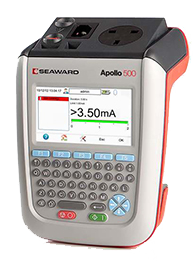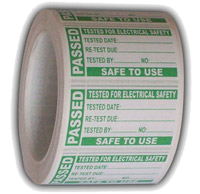
Portable Appliance Testing (PAT Testing)
If you run a business or are a landlord of tenanted premises portable appliance testing, commonly known as PAT testing, is an important part of protecting your business, its employees and users of electrical equipment. When conducting PAT testing all portable appliances with a mains plug need electrical testing. We can help you comply with your obligations by providing you with a cost effective full PAT test service.
 As a business and employer, you have a duty to prevent any harm coming to your employees and customers. PAT testing is one of the ways that you can comply with this obligation. Failure to implement a programme of regular appliance testing can also have implications for your insurance should an electrical related injury claim be made (an insurance company will assume the owners of that business are complying with all regulations).
As a business and employer, you have a duty to prevent any harm coming to your employees and customers. PAT testing is one of the ways that you can comply with this obligation. Failure to implement a programme of regular appliance testing can also have implications for your insurance should an electrical related injury claim be made (an insurance company will assume the owners of that business are complying with all regulations).
All portable electrical equipment is subject to getting damaged during use, and this damage could render the equipment dangerous to the user. Without a regular programme of testing and inspection it could be claimed that you have not taken reasonable steps to ensure the safety of users.
Our PAT tests are carried out in accordance with The Institute of Engineering and Technology (formerly IEE) code of practice for In-Service Inspection and Testing of Electrical Equipment.
What PAT Testing Involves...
Portable appliance testing includes a thorough visual check of the appliance and a series of tests on professional PAT testing equipment.
The appliance or lead being tested is checked for a variety of faults. It either passes or fails the tests and given a pass or fail sticker as appropriate. The testing will involve switching items off if they are already on and to minimise disruption to staff and customers, the testing can be done out of hours where necessary. We provide your business with a certificate of testing showing the results of all tests.
Legal Requirements
 Whilst PAT testing is not strictly compulsory, it is generally regarded as being the best way of meeting the electrical regulations that exist to protect employees, customers and tenants. Without testing you could be vulnerable for liability if an electrical accident were to occur.
Whilst PAT testing is not strictly compulsory, it is generally regarded as being the best way of meeting the electrical regulations that exist to protect employees, customers and tenants. Without testing you could be vulnerable for liability if an electrical accident were to occur.
There are legal requirements contained in the legislation listed on the panel on the right which can be met with PAT testing. In summary, they cover the duty of care to ensure the safety of everyone using work premises, including a safety risk assessment for those using electrical equipment and the need to ensure that it is maintained in a state of good repair and in efficient working order.
Further Guidance
You can view the details from within the relevant legislation which can be met with PAT testing by clicking on the titles below:
Health & Safety at Work Act 1974.
This places a duty of care on both the employer and the employee to ensure the safety of everyone using the work premises .
Workplace (Health, Safety and Welfare) Regulations 1992.
Management of Health & Safety at Work Regulations 1999.
Both above deal with responsibility for employers to assess risks to health and safety of his employees to which they are exposed whilst they are at work as well as risks of others connected to business.
Electricity at Work Regulations 1998.
Ensures all electrical equipment connected to a source of electricity should be maintained so as to prevent a danger.
Housing Act 2004.
Provides requirement for a safe and healthy environment for any potential occupiers or visitors.
Electrical Equipment (Safety) Regs.
Any electrical appliances provided as part of a tenancy the landlord must ensure that the appliances are safe when first supplied.
Contact us to see how our PAT testing services can help you - 01457 763838 or 07939 138 495



















